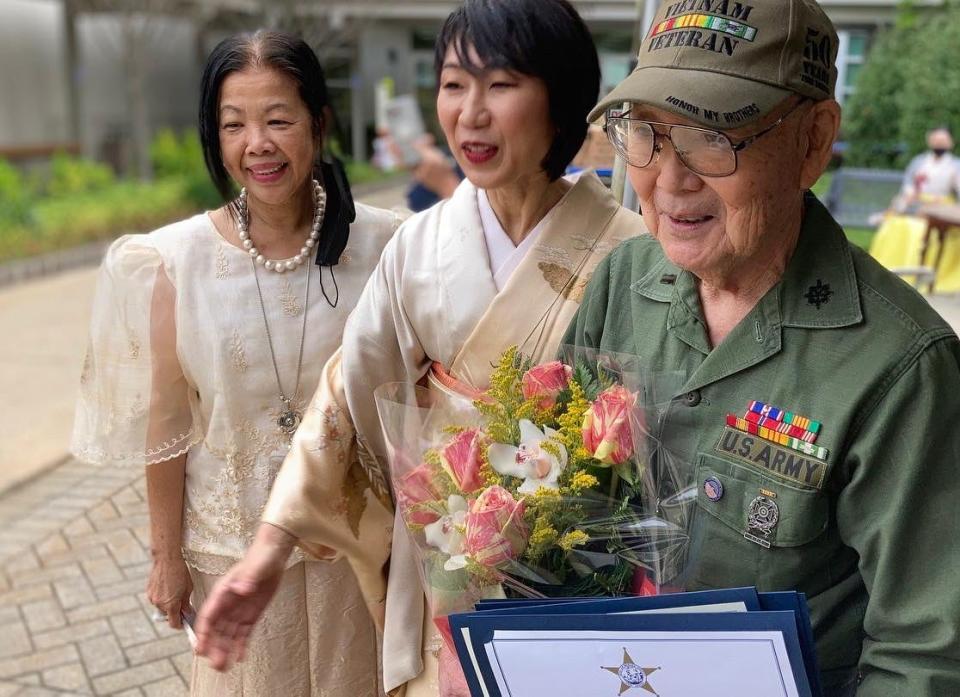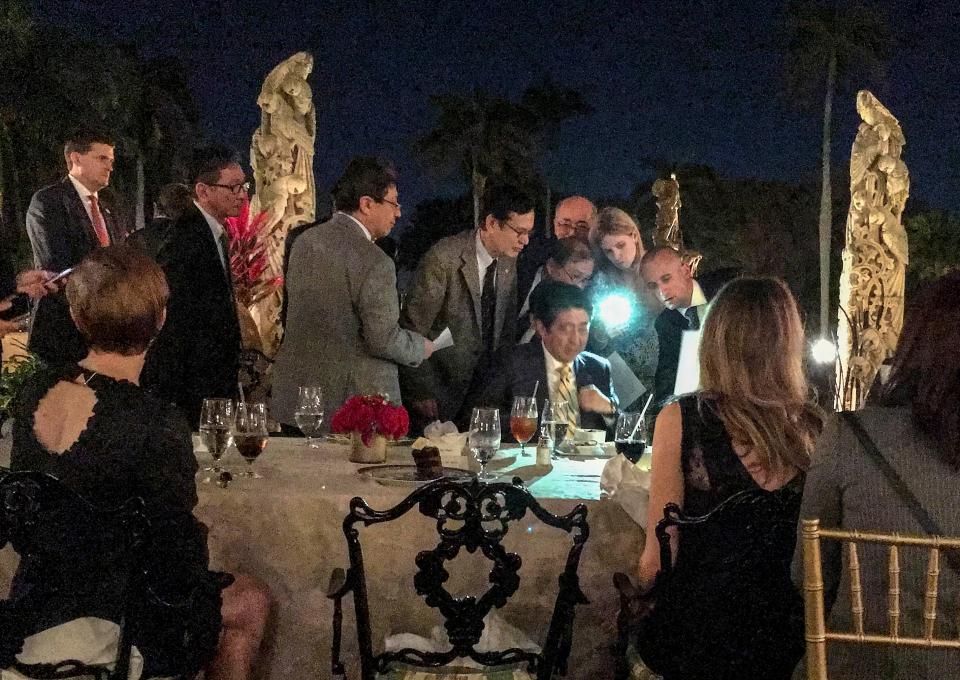'Everyone is trying to make sense of it.' NJ Japanese community stunned by Abe's death
- Oops!Something went wrong.Please try again later.
A flurry of texts and messages arrived on Yuko Okada's phone late Thursday night. Former Japanese Prime Minister Shinzo Abe had been shot, Okada read. The River Edge resident and immigrant from Japan was in disbelief.
"Is this fake news?" she asked friends in Japan. "It doesn't seem normal."
For Japanese Americans in North Jersey, the assassination of Abe, Japan's longest-serving prime minister, came as a shock. especially for natives of a country with some of the strictest gun control laws in the world.

"Everyone is trying to make sense of it," said Shinako Sudo-Chassagne, 52, of Jersey City. "Everyone is trying to cope."
Sudo-Chassagne, who came to America in the late 1980s, tried to process the attack through Japanese news outlets and commenters. Those from the political left and right condemned the attack, which stirred anxieties across Japan and in emigree communities in North Jersey.
"It's just not right," said Sudo-Chassagne, who owns a media production company and a Japanese restaurant in Jersey City.
Abe was 67 but was Japan's youngest prime minister ever when he first took office in 2006. He left a polarizing legacy as a leader who helped rebuild Japan's economy but angered liberals with his hawkish military philosophy.
He was shot in the western city of Nara while delivering a campaign speech on behalf of a candidate in Japan's upcoming parliamentary elections. Police arrested a 41-year-old former member of Japan's navy, who reportedly used an improvised device to carry out the attack.
Abe was remembered by Japanese Americans in New Jersey as a proactive lawmaker who wasn't afraid of change. Closter resident Takeshi Furumoto, 77, who has operated his realty business in Fort Lee for four decades, praised the former prime minister for leading Japan out of a long period of stagnation that began in the 1990s.
"He did a good job to help the Japanese economy," said Furumoto, who assists Japanese businessmen with home purchases in Fort Lee and North Jersey. "In my opinion, he had great plans."
Beauty in the eye of the beholderSocial media is evolving American beauty standards - Chao
Seeking unityNJ Asians call for unity as a deadly shooting underscores our ethnic divisions — Mary Chao
Japan suffered a long downturn after the collapse of the economic bubble of the 1980s. Abe served as prime minster from 2006 to 2007 and again from 2012 to 2020 and instituted a series of policies that came to be known as Abenomics and included monetary easing from the Bank of Japan, fiscal stimulus through government spending and efforts to increase women's role in the economy.
"Abenomics was a big success," said Okada, who grew up in Tokyo and came to the U.S. 25 years ago.
In a statement, Japanese Prime Minister Fumio Kishida called the assassination “a despicable act" and noted it took place during a speech ahead of Sunday’s planned elections − "the very essence of democracy." The killing was "entirely unforgivable in my eyes. I condemn it in the strongest possible terms." Fort Lee and surrounding towns have long been a hub for Japanese families who came to work in New York City, but during Japan's economic crisis in the 90s, many companies ordered their staffers back to the home country, said Ludi Hughes, who works at the Bergen County Division of Cultural & Historic Affairs.

About 7,400 people of Japanese descent currently live in the county, Hughes said, among 13,000 Japanese Americans in New Jersey, according to the 2020 census.
Okada, 52, initially moved to Fort Lee before relocating to River Edge and recalls the vibrant Japanese community there. The pandemic has limited Japanese migration to the United States even more so in the past two years and restricted visits by Japanese students as well, she said.
Okada travels back to Japan to visit her family and is now concerned after Abe's assassination. Gun violence is unheard of in Japan, said Okada, who operates a Japanese drumming school in River Edge as well as an import-export business. She worries about copycat crimes after Abe was killed with a homemade weapon.
"(Gun violence) happens in America, Norway, Australia," Okada said. "But not in Japan."
USA Today writers Joey Garrison and Michael Collins contributed to this story.
Mary Chao 趙 慶 華 covers the Asian community and real estate for NorthJersey.com. To get unlimited access to the latest news out of North Jersey, please subscribe or activate your digital account today.
Email: mchao@northjersey.com
This article originally appeared on NorthJersey.com: Shinzo Abe death: Fort Lee NJ Japanese enclave reacts to assassination

